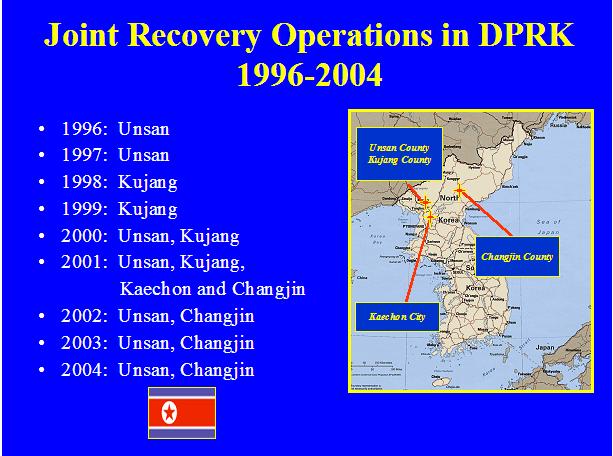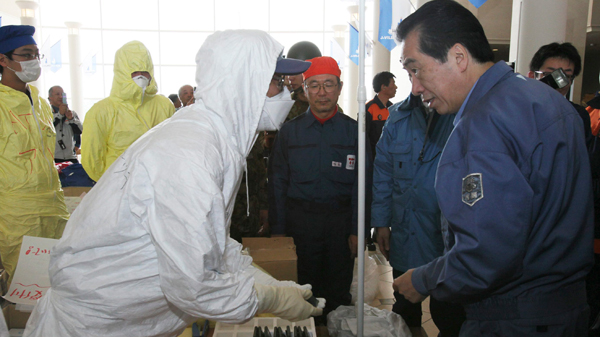Daily Report Archives
Established in December 1993, the Nautilus Institute’s *N*ortheast *A*sia *P*eace and *S*ecurity *N*etwork (NAPSNet) Daily Report served thousands of readers in more than forty countries, including policy makers, diplomats, aid organizations, scholars, donors, activists, students, and journalists.
The NAPSNet Daily Report aimed to serve a community of practitioners engaged in solving the complex security and sustainability issues in the region, especially those posed by the DPRK’s nuclear weapons program and the threat of nuclear war in the region. It was distributed by email rom 1993-1997, and went on-line in December 1997, which is when the archive on this site begins. The format at that time can be seen here.
However, for multiple reasons—the rise of instantaneous news services, the evolution of the North Korea and nuclear issues, the increasing demand for specialized and synthetic analysis of these and related issues, and the decline in donor support for NAPSNet—the Institute stopped producing the Daily Report news summary service as of December 17, 2010.
Peter Hayes, Professor, RMIT University and Nautilus Institute Executive Director, Scott Bruce, Nautilus Institute Director, and Dyana Mardon, Nautilus Institute Program Officer, review the implications of the introduction and deepening of information technology in North Korea in light of the unique social structure and state controls over information flow and individual behavior found in the DPRK.
This essay reviews the implications of the introduction and deepening of information technology in North Korea in light of the unique social structure and state controls over information flow and individual behavior found in the DPRK. It expands upon and extrapolates from the NAPSNet Special Report “North Korea on the Cusp of Digital Transformation” by Alexander Mansourov published November 1, 2011.
Go to the article
This is the Summary Report from the Nautilus Institute workshop “Cooperation to Control Non-State Nuclear Proliferation: Extra-Territorial Jurisdiction and UN Resolutions 1540 and 1373” held on April 4th and 5th in Washington DC with the Stanley Foundation and the Carnegie Endowment for International Peace. This workshop explored the theoretical options and practical pathways to extend states’ control over non-state actor nuclear proliferation through the use of extra-territorial jurisdiction and international legal cooperation.
Other papers and presentations from the workshop are available here.
Go to the article
In this report Alexandre Y. Mansourov, a Nautilus Institute Senior Associate, comprehensively examines information technology in North Korea. He states that “[t]he DPRK mobile communications industry has crossed the Rubicon, and the North Korean government can no longer roll it back without paying a severe political price. The most the authorities can do now is probably to manage its rapid expansion in such a way that will ensure that the interests of the political regime and state security are taken care of first…While traditionally, the State Security Department monitored most communications on a daily basis, the implication of this explosion of mobile phone use is that communication in North Korea has transitioned from a panopticon of total control to a voluntary compliance system where the government makes an example of a select group to try and force the rest of the country to stay in line.”
Go to the article
This history describes US Commander in Chief Pacific Command’s actions in discharging his assigned responsibilities and his relationships with U.S. military and other governmental agencies. It records his command decisions and policy positions [in 1993]…“a year in which our national security goals for the Asia-Pacific region gained clarity, coherence, and acceptance.”
This report was released to the Nautilus Institute under the US Freedom of Information Act (FOIA). See the Institute’s FOIA Global Disclosure Project page to read more chronologies, histories and reports released to Nautilus.
Go to the article

In this essay Jeffrey Lewis, Director of East Asia Nonproliferation Program of the James Martin Center for NonProliferation Studies at the Monterey Institute, Peter Hayes, Professor of Global Studies, RMIT University and Executive Director of Nautilus Institute and Scott Bruce, Director of the Nautilus Institute, San Francisco examine the lead-up to negotiations between the United States and the DPRK on the nuclear issue that resume in Geneva on October 26, 2011. It notes the high priority placed on domestic economic issues, the escalating threat of a missile or nuclear test in North Korean statements, but then points to the underlying and fundamental issues of the threat of nuclear attack and the need for removal of such threat as the basis for eventual resolution of the North Korean nuclear issue. It concludes by prefiguring the issues that re-engagement of the DPRK would require be addressed in order to actually resolve the nuclear issue.
Go to the article
This history describes USCINCPAC’s actions in discharging his assigned responsibilities and his relationships with U.S. military and other governmental agencies. It records his command decisions and policy positions [in 1992]…“The U.S. led victory in the Persian Gulf and the collapse of the Soviet Union were the defining events of 1991. They also set into motion a sea change in the strategic environment, a change that found shape and definition in 1992. During the past year, this strategic transformation was marked by events perhaps less dramatic than 1991′s, but no less profound.”
This report was released to the Nautilus Institute under the US Freedom of Information Act (FOIA). See the Institute’s FOIA Global Disclosure Project page to read more chronologies, histories and reports released to Nautilus.
Go to the article

Jeff Kingston, Director of Asian Studies, Temple University (Japan Campus), examines why, in the midst of an unprecedented cascade of natural and nuclear disasters in Japan, the problem of Kan Naoto’s ouster trumped all others in the national media and politics. Kingston claims that, following the meltdowns at the Fukushima-Daiichi nuclear power plant, the Japanese media helped to protect the vested interests of the powerful ‘nuclear village’ by dwelling on Kan’s lack of leadership qualities and ignoring the institutional reasons why it is difficult for Japanese leaders to lead. “The ousting of Kan is an object lesson in crossing the powerful players who control Japan’s energy policy…While the village is in trouble, it retains enormous power to influence public discourse and politics”.
Go to the article



